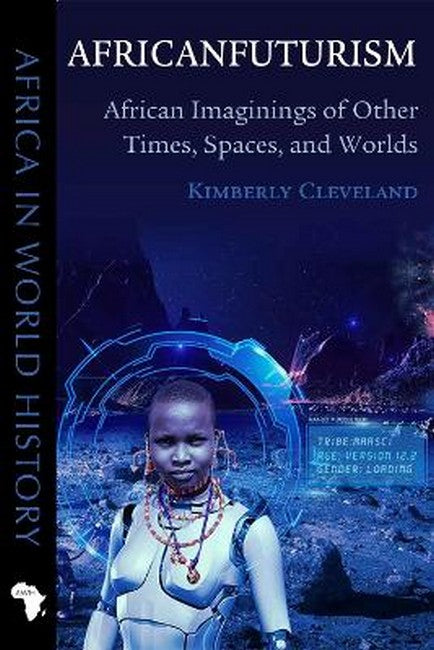Kimberly Cleveland is an associate professor of art history at Georgia State University. A specialist in both contemporary African and Afro-Brazilian art history, she explores questions of identity, ethnicity, and race in her teaching and research. Cleveland is the author of Black Art in Brazil: Expressions of Identity and Black Women Slaves Who Nourished a Nation: Artistic Renderings of Wet Nurses in Brazil.
Request Academic Copy
Please copy the ISBN for submitting review copy form
Description
List of Illustrations FOREWORD The Future in African Literature, by Ainehi Edoro-Glines Acknowledgments INTRODUCTION Afrofuturism and Africanfuturism: Same Difference? ONE From Africa in Western Speculative Expression to Africanfuturist Imaginings TWO Exploring Space and Time THREE Creating Worlds FOUR Technology and the Digital Divide FIVE Sankofa and Remix SIX Mythmaking Epilogue Notes Bibliography Index
Across Africa-in fiction, film, comics, games, painting, photography, sculpture, digital arts, even architecture -artists have long been creating decolonial visions of their world, its alternatives, and possible futures. It's well past time for the rest of us to sit up and pay attention-and Kimberly Cleveland's wide-ranging exploration of twenty-first-century Africanfuturism is the ideal place to start. - Mark Bould, University of the West of England Africanfuturism is a compelling and urgent investigation into the diversity of speculative expression throughout Africa. Meticulously researched, wide-ranging, and accessible in voice, Kimberly Cleveland convincingly makes the case for understanding Africa's futures-to-come as a decolonial project, situated within the historical, technological, and material urgencies of the continent's present. - Andrew J. Hennlich, Western Michigan University While there have been many polemical calls to distinguish African speculative art practices from ones centered in the diaspora, Kimberly Cleveland finally does it. With its accessible prose, discussion questions, and compelling examples drawn from art, literature, and film, Africanfuturism is a welcome addition to the art history or African studies classroom. - Paul Wilson, Ithaca College Kimberly Cleveland's Africanfuturism is impressively far-reaching. Designed as an introduction, it unpacks and elucidates how Africanfuturism's decolonial and utopian visions for the future are developed across a wide array of cultural and artistic practices. Individual chapters draw detailed examples from literature, music, film, photography, sculpture, architecture, and more for how they shape this evolving critical and cultural discourse. Cleveland's felicity with multiple artistic and cultural forms and practices is impressive and deeply informative. Newcomers and experts alike will find much to engage with here. I'm excited to share this scholarly and accessible book with my students. - Hugh C. O'Connell, University of Massachusetts Boston

